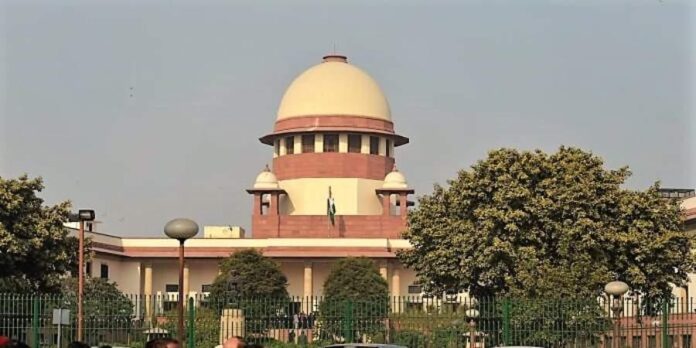The Apex Court should issue an authoritative ruling on the scope and meaning of hate speech so that citizens, implementing authorities, and courts receive clarity on the same, the application states.
India Tomorrow
NEW DELHI: A group of former civil servants has moved Supreme Court to intervene as applicants in the petition seeking a stay on the Sudarshan TV program “UPSC Jihad”, a show about how Muslims have “infiltrated” the Indian civil services, Bar and Bench has reported.
The applicants belong to an informal collective known as Constitutional Conduct Group.
The petition has been filed by Advocate-on-Record Anas Tanwir. It urges the Court to lay down an authoritative pronouncement on “hate speech.”
The intervention petition has been filed after the apex court last week had refused to impose a pre-broadcast ban on the show, but had issued notice to the Centre in the matter. It was alleged by the petitioners that the content of the program would stoke communal tensions in the country.
The intervenors state that the Court had expressed an intention to consider the balance between free speech and other constitutional values that were raised in the instant case, and that it was important for the Court to do so.
On September 1, 91 members of the Constitutional Conduct Group had submitted a representation to the Home Minister and the Minister of Information & Broadcasting, pointing that the said program “would generate hatred against the largest minority of the country and was based on demonstrable falsehoods about the supposed growth of the Muslim representation in the civil services and had the potential to divide the civil administration of the country on religious lines”.
The applicants have further stated that the Apex Court should issue an authoritative ruling on the scope and meaning of hate speech so that citizens, implementing authorities, and courts of the first instance receive clarity on speech that is protected and speech that falls outside such protection.
“Freedom of speech and expression is not limited to what the ruling dispensation may find palatable or what public consensus may permit but includes the freedom to dissent, to question received wisdom and established social mores and to offend, shock or disturb.”
The intervention application submits that a “heavy burden lies on the State to justify restrictions on freedom of speech and expression.”
The plea further states that there are several legal provisions which prohibit, criminalize or otherwise penalise what is colloquially known as hate speech. These include Sections 153A and 153B of the Indian Penal Code, Section 3(i)(x) of the SC/ST Act and Section 5 of the Cinematograph Act.
Elaborating on the freedom of speech and expression, the plea says that such a freedom “is not limited to what the ruling dispensation may find palatable or what public consensus may permit but includes the freedom to dissent, to question received wisdom and established social mores and to offend, shock or disturb“.
The plea states that the offence of hate speech lies not in the distress that it may cause to individuals, but in “targeting their social standing by virtue of their membership of certain groups in a manner that leaves them vulnerable hostility, discrimination and violence”.
“There is no bright line between hate speech and offensive speech. Each case requires the application of judicial mind.”





